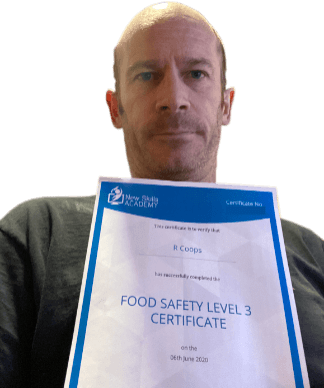Learning Blog
Preparing to Interview for a Social Work Position
A career in social work or community care can be immensely rewarding, but it requires a specific set of personal qualities and skills, along with formal qualifications in some cases.
In this article, you will learn how to prepare for a social work interview. Social workers need to be skilled in juggling a large caseload and know how to best allocate their time. This entails making decisions whilst under a considerable amount of pressure. At an interview, you may be asked to describe your personal stress reduction strategies and to give an example of a time you had to prioritise several cases.
Previous Experience of a Social Work Position
If you have already held a social work position, you should draw on your previous experience in the role. If not, think about the placements you undertook as part of your degree. If appropriate, you could tell the interviewer about a time a mentor showed you how to manage a high caseload and what you learned from their working style. Or think about other instances, either in your work or personal life, where you have been under stress and how you dealt with it.
Go into the interview with at least two examples that prove you can work well under pressure.
It is imperative that social workers have an excellent understanding of legislation relevant to specific cases and that they are willing and able to keep accurate records. Be prepared to tell the interviewer how and why you need to record visits, discussions and other pieces of information pertinent to a case. Emphasise that you are keenly aware of timely report writing and that you are always eager to keep up to date with changes to legislation in your area of interest.
A social work interview will provide an opportunity to showcase your knowledge of how theory and practice should be combined. Before your interview, make a list of the key models and theories that have been relevant to your career in social work to date. Try and refer to these throughout the interview.
For example, if you are asked what you learnt during your last job in a role that entailed working with families, you might mention that it helped you to have an enhanced appreciation of people as individuals and unique beings, rather than cases to be examined. You could then provide specific examples of a real-life case.
Key Skills
Active listening, critical thinking, time management and tolerance are key skills that all social workers need to demonstrate in an interview. You may well be asked to tell the interviewer about the ways in which you seek to further your competence and knowledge. The most effective way to answer this kind of question is to talk about two or three specific courses, workshops or books that have helped improve your performance as a social worker over the past year.
Highlight the skills that are most useful for social work so that the interviewer can see what you can bring to the role that will enhance the service offered to clients. Be ready to give at least one example of how you have applied your new knowledge to a professional problem.


Career Development
You should consider how you would like your career to develop over the next three, five and 10 years. This means thinking about the client group you want to work with, the type of setting in which you wish to work and whether you are looking to work your way up the career ladder and take on a management position.
Show the interviewer that you aren't just looking to secure the first social work job you can find, but that you have a genuine desire to make a difference to individuals within a specific area.
Offer solutions to potential challenges. Highlight ways in which you have resolved issues in the past so that the interviewer can see your troubleshooting capabilities, as everyone has, at some point, had to deal with ad-hoc requests in their job.
Ask Questions
Towards the end of the interview, you will be given the opportunity to ask the interviewer a few questions. You should always have at least a couple of questions prepared in advance, even if you know the answer. Asking questions suggests a genuine interest in the role.
The interview is a chance to learn more about the team you will be joining if you get the job and to ask what the working environment is like. This will give you valuable insight into whether the team is stable or if it is likely to be a high-stress environment.
Remember, a job interview is not simply just a way for an employer to find out whether you are right for the job, it is also a chance for you to find out if you want the job.
In Conclusion
Your objective when being interviewed for a role in social work is to demonstrate a comprehensive understanding of relevant legislation, a sound approach to managing stress and a commitment to the role, to best serve your clients. A caring personality and a genuine desire to help vulnerable people is essential, however, thorough preparation is required if you truly want to convince the interviewer to give you a job!
You can find more information about working in social care on the NHS website.
To learn which online health and social care courses are available through New Skills Academy, click here.
Learn with confidence...



 RRP
$100
RRP
$100
Get a FREE Course
Tick this box to Sign up for our newsletter, and get access to the Interview Skills and CV Writing Certificate course for free! By signing up, you agree to our Privacy Notice & Cookie Policy and to receive marketing and related emails from academy+ brands. You can unsubscribe at any time.What our students say about us...

Omg im so excited, over joyed and all the good stuff that comes to mind! Wonderful experience doing lessons with New Skills Academy. I look foward to doing more courses with them. I hope this will encourage others to come on board and refresh your minds or to learn something new, it's a win win situation. I want to thank New Skills Academy so much for making this as simple as possible for me.
Shari Anderson

This course is a great way to brush up on my rusty excel skills, I recommend this course to anyone looking for something to do during lockdown, it's easy to use and talks you through each stage step by step. It has given me the confidence I need to further my career.
Georgia Darke

The course was clearly set out with helpful end of week tests which built my knowledge. Being dyslexic I found the course was set out in an easy to understand way. I was able to pass the test on my first attempt. The downloaded pdf are a useful resource that you can keep forever. Looking forward to the next course
Ross Dunsten

I found this course incredibly useful, as it provided me with practical knowledge which I can implement in my role as a Support Worker. The videos were clear and concise, and the downloadable worksheets reinforced what I had learned as I was able to put pen to paper. Overall, a fantastic course for a great price! I am looking forward to taking on my next one.
Teleisha Harley

Yet another well laid out course. This is my 3rd course so far with New Skills Academy.
More than likely will be back for another one soon. This course was enjoyable to do, and I learnt a lot and passed first try. My certificate will be up on the wall soon.
Rob Coops

Fantastic course! Well-presented and challenging with frequent assessments. I feel a serious sense of accomplishment having not studied for over 30 years! Videos that accompany each module are carefully thought out and informative. Am so impressed with this course, have now signed up for 3 other courses and recommending New Skills Academy to everyone!
Marva Hudson

Excellent course, well explained and easy to understand. The course can be done at my own pace and is available on various devices. The layout of the course was excellent and the notes options is very good. The content is perfect and well structured, making it easy to understand and follow. I will definitely be taking more courses in the future.
Luis Costa

Lovely course for people who want to know the basics and of sign language. It's has helped me to get more of an understanding and will greatly benefit me in my workplace. So easy to pick up and the videos were easy to understand. Would definitely recommend to anyone.
Chloe Hambly




